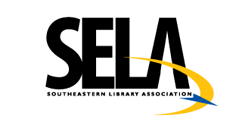Abstract
As digital technology developed to a point that electronic searching for information became practical, librarians began a quest for the Holy Grail of a single-search option that had the potential to harvest search results from the entirety of a library’s holdings. Initially it was hoped that federated searching might be this option, but federated searching was found unequal to the task. Response time was slow and could skew relevance rankings (Thompson, 2013). Further, the first generation of federated search engines proved not nearly capable of searching the totality of a library’s holdings. Something more was needed. That something more was Web-scale discovery. Web-scale discovery combines a pre-harvested central index tool coupled with a richly featured discovery layer, offering a single search across a library’s local, open access, and subscription collections (Hoeppner, 2012). Developed and marketed by multiple library vendors, it is a federated solution designed to “simultaneously search, retrieve and adequately display content from various remote information hosts -- such as abstracting and indexing and full-text databases” by using a Google-like search box (Vaughan, 2011, p. 6). Currently, five leading web-scale discovery products are used in participating academic libraries: EBSCO Discovery Services, abbreviated as EDS; Innovative Interfaces Encore Synergy (now called “Encore Discovery Solution”); Primo from ExLibris (now called “Primo Discovery”); Summon from Serials Solutions (now called “The Summon Service from ProQuest”); and WorldCat Local from OCLC (now called “WorldCat Discovery Services”). WorldCat Local dates from 2007 and Summon from Serials Solutions from 2009; the other three products mentioned date from 2010. The potential of Web-scale discovery (WSD) has generated great interest from academic libraries who have adopted discovery tools, including many in the State of Alabama. Following the University of Washington’s participation in the first pilot program for OCLC’s WorldCat Local in 2007 (Thomas & Buck, 2010 ) and the first initiative (the Open Discovery Initiative) that was introduced at the American Library Association’s annual conference in June 2011, college and university libraries have investigated what Web-scale discovery tools (WSDTs) are and how they work.
Publication Date
2-2-2017
